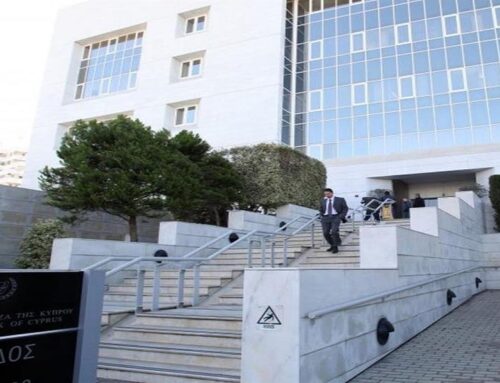Source: www.echrcaselaw.com
Busuttil v. Malta 3.6.2021 No. 48431/18
Presumption of objective liability of the director of a bankrupt company for non-payment of its debts to the State and insurance contributions. The applicant was criminally convicted after leaving the company, although he claimed to be unaware of the company’s financial situation. He asserted that his confession had been obtained through torture, but that his confession had been obtained through torture.
In the view of the ECHR, the national law which provided that the applicant, assuming his responsibilities as director, was also obliged to pay its relevant tax debts in order to maintain an operating system in the interests of all, is compatible with the ECHR, as long as he as an accused was not deprived of the means to overturn the above presumption.
According to the ECHR, the presumption under national law that the director is responsible for any legal obligation of the company was not unreasonable in the circumstances of the present case.
Non-violation of the presumption of innocence (article 6 §2 of the ECHR).
PRINCIPAL FACTS
The applicant, Antonio Busuttil, is a Maltese national who was born in 1947 and lives in Sliema
(Malta).
The case concerns criminal proceedings against the applicant, as a director of a company, in which he was found guilty of failing to pay tax dues, with the use of legal presumptions.
In 2001 the applicant became a co-director (owning 25% of the shares) of company M., where he was already employed, following an invitation from the two other directors. During the period 2003-06, company M. failed to submit to the authorities the relevant tax forms and payments of
provisional tax and national insurance contributions on behalf of its employees. After the applicant’s departure in 2006, under the management of the two other directors, the company went bankrupt. In 2011 the tax authorities ordered the applicant to pay, on behalf of the company, approximately323,500 euros (EUR) in outstanding tax.
Relying on Article 6 § 2 (presumption of innocence) of the Convention, the applicant complains that a presumption of guilt was applied against him on the basis that he was the director of company M., despite the fact that the situation had been hidden from him.
THE DECISION OF THE COURT…
The Court notes that it is not in dispute that under Maltese law a director is responsible for any act which by law must be performed by the company and this is the presumption of law at issue in the present case. It is also not disputed that Section 13 of the Interpretation Act provides the ways in which a director can exculpate himself, namely if he or she proves that the offence was committed without his or her knowledge and that he or she exercised all due diligence to prevent the commission of the offence. That provision has been found to be compatible with Article 6 § 2 by this Court as the conditions, which required the applicant to prove that he had no actual knowledge of the offence and also was not negligent in his duties as an officer of a company, were not self‑contradictory, nor did they impose an irrebuttable presumption (see A.G. v. Malta, Commission decision, no. 16641/90, 10 December 1991).
However, the Court notes that, according to the Court of Appeal, Section 13 of the Interpretation Act (which would have given the applicant, as a director, a possible defence) had not been applicable to the applicant’s case (see paragraph 16 above). Thus, in the criminal proceedings against him, the applicant’s possibility of rebutting his presumption of guilt, as director, had been limited to the defence of impossibility which the Court of Appeal found had not been proved.
The Court observes that the parties have not elaborated on the extent of this defence. However, it appears evident that its scope is more limited than that under Section 13 of the Interpretation Act. Nevertheless, the Court considers that the applicant was not left without any means of defence (see, mutatis mutandis, Müller v. Austria, no. 12555/03, § 34, 5 October 2006). He had been allowed to plead his case and put forward relevant evidence before the domestic courts having full jurisdiction. The Court of Magistrates had dismissed all his defences on the basis of his own testimony and the Criminal Court of Appeal had also assessed in detail the merits of his defence of impossibility.
Furthermore, the Court observes that the Constitutional Court did not confirm the finding that Section 13 of the Interpretation Act was inapplicable. Instead it found that, even assuming that it was applicable, the evidence before the constitutional jurisdictions showed that the elements to uphold a defence under Section 13 of the Interpretation Act had not existed. The Court observes that, while it is true that the function of the constitutional jurisdictions is not to determine the guilt or innocence of an accused, their findings in relation to this defence comfort the findings of the courts of criminal jurisdiction. The applicant, who before the Court contests that evidence, has not complained that he was unable to bring all the relevant evidence before the constitutional jurisdictions.
Moreover, the Court notes that in the criminal proceedings the prosecution had been required to prove that the applicant had been the director of the company at the time, that the company had failed to satisfy the relevant fiscal obligations, and that the company had failed to pay a specified amount of tax. Elements which had been proven by the prosecution and had not been disputed by the applicant. There is no indication that the domestic courts applied the domestic rules on the burden of proof in a manner incompatible with the presumption of innocence. In particular, the applicant has not explained in what way the burden of proof imposed on him was unattainable (see paragraph 38 above) to the extent that his defence could have no prospect of success. As noted by the domestic courts the defence of impossibility could be upheld in various circumstances.
The Court also notes that there is nothing indicating that the criminal courts in fulfilling their functions started from the assumption that the applicant was guilty (see, mutatis mutandis, Hansen v. Denmark, (dec.) no. 28971/95, 16 March 2000). Further, in reply to the applicant’s argument concerning the lack of criminal intent (see paragraph 35 above) the Court reiterates that the Contracting States may, in principle and under certain conditions, penalise a simple or objective fact as such, irrespective of whether it results from criminal intent or from negligence.
The Court has regard to the financial interests of the State in tax matters, taxes being the State’s main source of income (see Janosevic, cited above, § 103, and Västberga Taxi Aktiebolag and Vulic v. Sweden, no. 36985/97, § 115, 23 July 2002). Moreover, the present case also concerns the failure to pay national insurance contributions which in turn are used to fund welfare benefits and public health care, both prominent interests in a State’s set up. Given that such contributions are paid in part by employers, which are often established as, inter alia, companies, a director’s role assumes considerable importance in such a system. In the Court’s view, it is therefore judicious for the law to provide that the latter, in taking up his or her responsibilities as director, takes up the obligation to pay the relevant tax dues, in order to allow for a functional system in the interests of all those concerned, as long as some means of defence remains available to an accused.
Bearing in mind the above, the Court considers that the presumption under Maltese law, that a director is responsible for any act which by law must be performed by the company, was not unreasonable in the circumstances of the present case.
There has accordingly been no violation of Article 6 § 2 of the Convention
Case can be found here




















